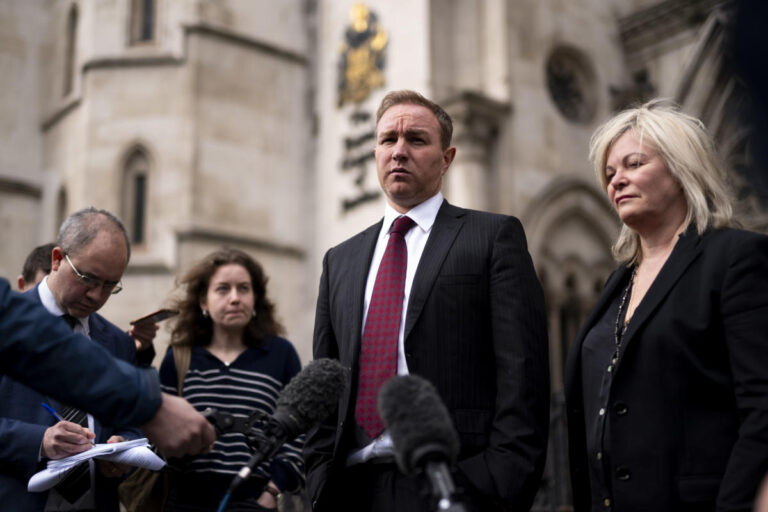LONDON (AP) – A British financial trader blamed for masterminding a major interest rate manipulation operation before and after the global financial crisis lost his appeal Wednesday to have his conviction set aside.
Tom Hayes, 44, a former trader at US bank Citigroup and Switzerland's UBS, was found guilty in 2015 of manipulating the so-called London Interbank Offered Rate (LIBOR) between 2006 and 2010. Ta.
Hayes, described at trial as the central figure in a massive fraud, spent half of his 11-year sentence in prison before being released in 2021. He was also convicted in a US court in 2016.
Like former Barclays trader Carlo Palombo, 45, he has always maintained his innocence and his case was also dismissed by the UK Criminal Cases Review Commission, which investigates possible miscarriages of justice. The case was referred to the Court of Appeals. Palombo denied any wrongdoing, but after a retrial, he was sentenced to four years in prison in April 2019.
The referral of the two cases followed a 2022 U.S. court ruling overturning similar convictions of two former Deutsche Bank traders.
At a three-day hearing in London earlier this month, the men's lawyers argued the convictions were “dangerous” and should be thrown out. The Serious Fraud Office, which investigates potential financial crimes, opposed the appeal.
“No one is above the law and the court has found these convictions to be firm,” it said in a statement.
Speaking outside the Royal Courts of Justice after the verdict, Mr Hayes said the decision by the three appeal judges was “shocking” and that he would aim to take the case to the Supreme Court. Appeals to the Supreme Court must be filed within 14 days.
“I am a fighter, not a quitter,” he said, adding that his case was “not consistent” with French, German and US law.
LIBOR is a key interest rate that banks use to borrow from each other, and it has indirectly affected the cost of loans that consumers pay, such as when buying a home or a car. This is an average interest rate calculated based on figures submitted by a committee of London's largest banks, which reported how much each bank charges to borrow from other financial institutions.
The scandal emerged in 2012 when some banks were accused of intentionally submitting false numbers to get LIBOR set at a rate that suited them.
LIBOR has been phased out in recent years, in part because many saw it as exacerbating the 2008 financial crisis.

